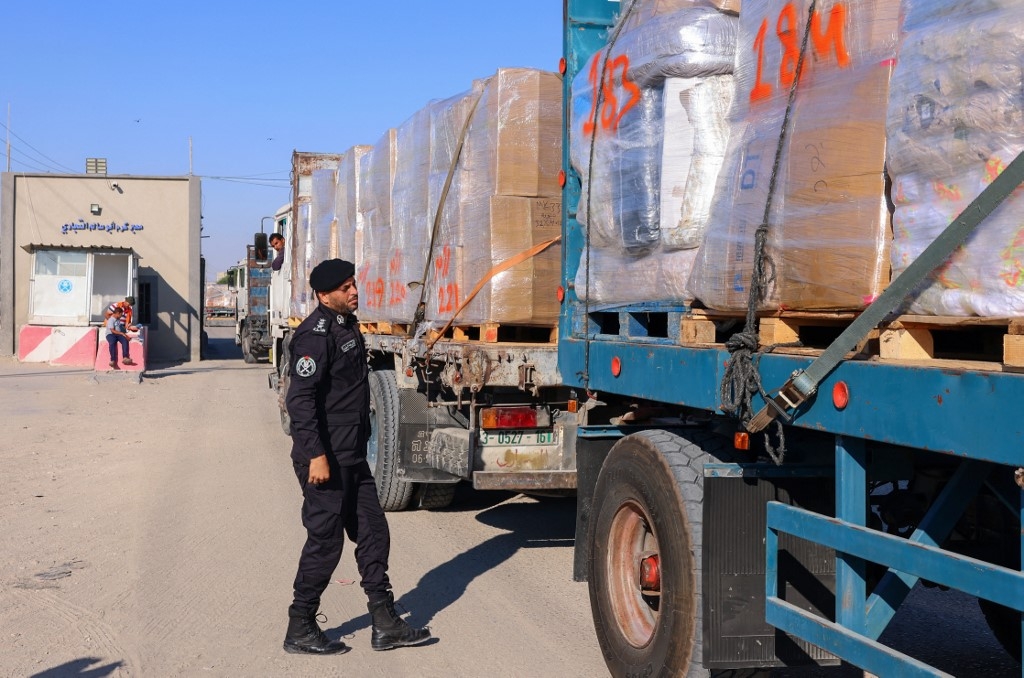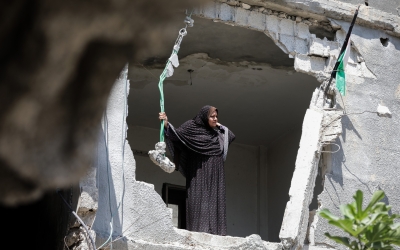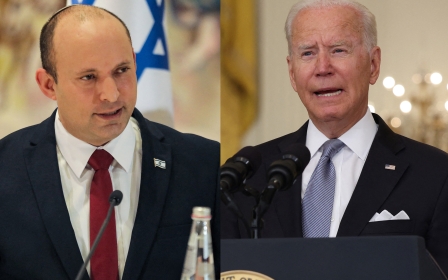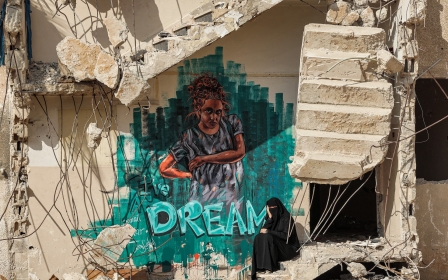House Democrats urge Biden to ensure aid enters Gaza from Israel and Egypt

More than 50 House Democrats have called on the Biden administration to work with Egypt and Israel to ensure the delivery of aid into Gaza, as the lawmakers cited concerns over the prohibition of materials entering the besieged strip months after Israel's offensive left a devastating humanitarian toll on the country.
The group of 53 lawmakers sent a letter to US Secretary of State Antony Blinken on Wednesday, urging him to push for a full reopening of the Kerem Shalom, Erez, and Rafah border crossings into Gaza, adding that the Rafah crossing at Egypt's border was not enough.
"The ongoing humanitarian crisis in Gaza is untenable. Ensuring that Palestinians residing in Gaza receive humanitarian aid is vital to securing the wellbeing of Gaza's 2.1 million residents," read the letter, led by Congressman Mark Pocan and Congresswoman Debbie Dingell.
In addition to the border crossings, the letter decried the lack of clarity over what construction materials are allowed into Gaza, citing that Israel can "selectively ban materials that it considers having 'dual use'—any item it claims could have a military application". In the past, this has extended to water disinfectants, desalination units and electricity generators.
"We urge you to work with your counterparts to provide clear guidance on the materials allowed into the Gaza Strip," the lawmakers told Blinken.
The members of Congress also called for the extension of Gaza's fishing zone to 20 nautical miles, after Israel temporarily moved to restrict it to six nautical miles - a decision that had impacted thousands of people dependent on fishing for work.
"Although the restriction was recently reversed, the decision to collectively punish the people of Gaza by unilaterally restricting its fishing zone remains extremely concerning," they wrote.
The letter was also signed by Jamaal Bowman; Pramila Jayapal; Ro Khanna; Betty McCollum; Ilhan Omar; Rashida Tlaib; and 45 other members of Congress, according to Haaretz.
Israeli restrictions on Gaza
Around 1,500 economic establishments in Gaza were estimated to have been destroyed or damaged during the Israeli bombing campaign in May that killed at least 248 Palestinians.
Palestinian officials have stated it resulted in $479m worth of losses.
The two million Palestinians living in Gaza have meanwhile faced a tightening of Israeli restrictions on the entry of goods into the besieged enclave in recent months.
Israel has prevented the import of raw materials, building materials, electrical appliances and equipment, as well as wood, metal and plastic equipment into Gaza, while imposing strict restrictions on exports, allowing only small quantities of produce and fish to come out of the Palestinian territory. The effect has been a state of "paralysis" in various sectors, with unemployment rising to 75 percent.
The restrictions are thought to be linked to Israel's efforts to pressure Hamas into releasing four Israelis - two of whom are dead - believed to be held in Gaza.
Israel has argued that mechanisms for aid to enter Gaza need to be guaranteed so it does not reach Hamas, which has served as the de facto ruling party in the Gaza Strip since an armed conflict with political rival Fatah in 2007.
Earlier this week, a decision by Israel to confiscate 23 tonnes of chocolate bars destined for Gaza for the same claim, that it would fund Hamas military operations, had sparked ridicule and criticism on social media.
Middle East Eye propose une couverture et une analyse indépendantes et incomparables du Moyen-Orient, de l’Afrique du Nord et d’autres régions du monde. Pour en savoir plus sur la reprise de ce contenu et les frais qui s’appliquent, veuillez remplir ce formulaire [en anglais]. Pour en savoir plus sur MEE, cliquez ici [en anglais].





